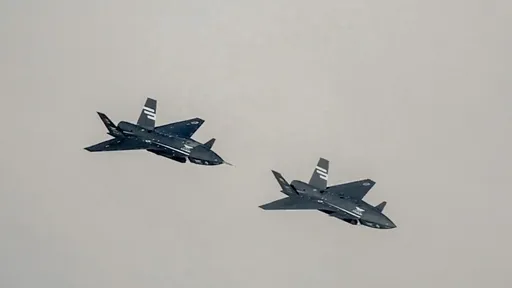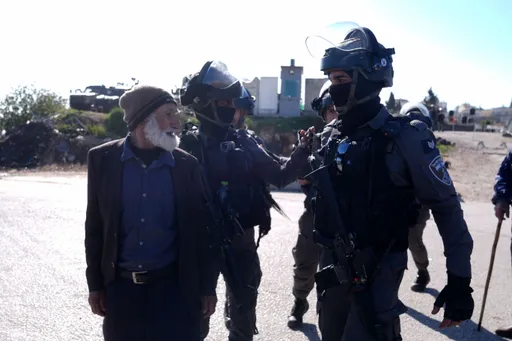“As a global economic and democratic power, can Europe be content with a situation where we are unable to ensure, unassisted, the evacuation of our citizens and those under threat because they have helped us?" European Council President Charles Michel asked recently. "In my view, we do not need another such geopolitical event to grasp that the EU must strive for greater decision-making autonomy and greater capacity for action in the world.”
There is a reason for this remark by Charles Michel, and it represents a new mentality within the European Union. Vice President of the European Commission, Josep Borrel, echoed this view in an opinion piece for the New York Times in which he states that Afghanistan was a wake-up call for Europeans.
In his piece, Borrel underlines that despite Europe’s economic and military investment in Afghanistan, it continues to rely on American decisions. He proposes that a common European security strategy and a European military capacity could help address the gaps in Europe’s approach.
Even though European officials are labelling this search for autonomy as a tool for enhancing the transatlantic alliance, the reality is quite the opposite. The idea of a European army does not serve the alliance; it weakens the meaning of it.
By exploiting the current irritation over the way the US conducted its withdrawal, the EU, as an institution, is trying to advance the idea of becoming less dependent on Washington.
If the goal was to enhance cooperation and become a reliable and valuable ally to the US, the discussion would be around increasing defence spending, the role of European states within NATO and military capacity; and how to take some of the burden off the US military in the context of NATO. The current discussion in Europe aims to undermine the transatlantic alliance.
While the US decision to withdraw from Afghanistan has pushed states and non-state armed actors to rethink their reliance on the US, the European demand for military autonomy from the US has been in the talks for years.
France has repeatedly expressed its desire to work on a European army. However, the pursuit of European autonomy from the US is especially in the interest of Paris; the French strategy is to make Europe less reliant on the US and more dependent on France.
In this manner, Paris has exploited political differences between Greece and Turkey over maritime delimitation to pursue its Neo-Napoleonic ambitions. France's push for a European army, greater autonomy from the US and apologia for Russian expansionism raise questions about its commitment to NATO and led to questions about whether France is a Trojan horse within the alliance.
Despite the rhetoric from EU and French officials, a European army is not a viable option. Even if the EU manages to overcome the major differences among its member states – a herculean task – it would lack the resources, capacity, experience and public support. To put it more clearly, without the UK and Turkey, a European army is just a fairytale.
To come up with an allied army requires certain qualifications. It’s not without a reason that NATO functions: the US military expenditures make up 37 percent of the total in the world. It is difficult to expect European states that cannot even fulfill the 2 percent defence spending criterion of NATO, to be able to form a European army.
Moreover, the Europeans do not have the capacity for such an army. Other than France, no EU member is engaged in any meaningful ongoing military operations.
Forming an army requires experience in leadership and coordination. EU countries that wrestle over each political decision cannot lead in the way such an institution would require. They might think they know how to coordinate their respective militaries, but they do only so thanks to the established American leadership and organisational structure in NATO.
Last, but not least, most of the European public would deny their support to such an institution. For instance, an attack like the recent terror attack at the Kabul airport would have been enough to end governments in Europe.
Across the European continent, only three states have a real army: the UK, Turkey and France, and only the UK and Turkey have the above-mentioned experience in leadership and coordination, and the required public support. It would be foolish to expect a European army without the third and fourth strongest armies of NATO, respectively.
The only thing the EU can form is a small contingent of an autonomous rapid deployment force. But even that may fail, as many European states like Germany do not have helicopters to transport their troops, have broken fighter jets and rely on allied capacity within NATO.
Advocates for the European army like France and EU officials are sabotaging themselves with their unrealistic goals and aims. After Brexit and the current stop of accession talks between Turkey and the EU make it impossible for these countries to even consider joining the European army. The EU is also not interested in having them on board.
Even though it’s true that the American actions in Afghanistan have inflicted harm on trust in NATO and the US, talks of European autonomy are not realistic either.
Instead of exploiting the current irritation to boost the stance of France within the EU, Europeans should not waste time discussing military autonomy and focus on how to increase trust and cooperation within NATO. Some introspection is needed as well: while EU members are upset about the way the US withdrew from Afghanistan, Turkey contributes to the alliance despite American and European support to the YPG/PKK in Syria – a national security threat to Turkey.























